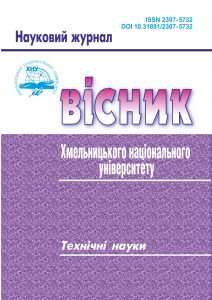АНАЛІЗ ПІДХОДІВ ДО МЕТАПРОГРАМУВАННЯ В .NET
DOI:
https://doi.org/10.31891/2307-5732-2023-323-4-262-267Ключові слова:
метапрограмування, .NET, C#, рефлексія, генерування коду, Reflection.Emit, Expression, System.CodeDom, T4, Source Generators, RoslynАнотація
Розглянуто та проаналізовано сучасні підходи до метапрограмування, що використовуються в .NET. Одним із підходів є використання механізму рефлексії платформи .NET, що дозволяє працювати з метаданими програми в процесі виконання та підключати нові модулі. Такий підхід дозволяє узагальнити певний функціонал, що спрощує процес розробки, але використання рефлексії має негативний вплив на швидкодію додатку. Іншим підходом є використання функціоналу платформи .NET, що дозволяє генерацію коду під час виконання додатку. Для цього використовуються класи простору імен System.Reflection.Emit, які дозволяють генерувати CIL код. Проте такий підхід потребує знання CIL та особливостей роботи CLR, що ускладнює процес розробки і підтримки програми. В .NET є можливість генерації коду в процесі виконання додатку з використанням декларативного підходу за допомогою механізму виразів. Вирази в .NET являють собою окремі блоки, кожен з яких описує операцію над даними. Такі блоки об’єднуються в дерева виразів, що дозволяє описувати складні операції над даними. Дерево виразів може бути сформоване в процесі виконання додатку та скомпільоване, в результаті чого буде отримано лямбда функцію, що виконує описані виразами операції. Проте такий підхід не надає можливості контролювати процес генерації коду. Окрім генерації CIL, у .NET є механізми генерації вихідного коду різними мовами. В статті розглянуто генерацію коду мови програмування C#. Одним із підходів є використання класів простору імен System.CodeDom, що дозволяє генерацію та компіляцію вихідного коду в процесі виконання програми. Проте, компіляція опирається на використання .NET Framework компілятора, що робить неможливим повноцінне використання такого підходу в нових версіях .NET. Підхід з використанням T4 дозволяє генерацію коду на основі шаблонів перед компіляцією додатку, що надає можливість виявляти синтаксичні помилки в згенерованому коді ще на етапі компіляції. Проте технологія T4 є частиною IDE Visual Studio, що робить її використання неможливим поза межами цієї IDE. Альтернативою T4 виступає технологія Source Generators, яка є частиною .NET Compiler Platform SDK. Оскільки Source Generators є частиною компілятора .NET, то процес генерації коду є складовою процесу компіляції додатку, що надає доступ до великої кількості метаданих. Проте використання Source Generators можливе лише в нових версіях .NET. Коректне поєднання підходів до метапрограмування дозволить створити ефективні інструменти для оптимізації процесу розробки .NET додатків.

